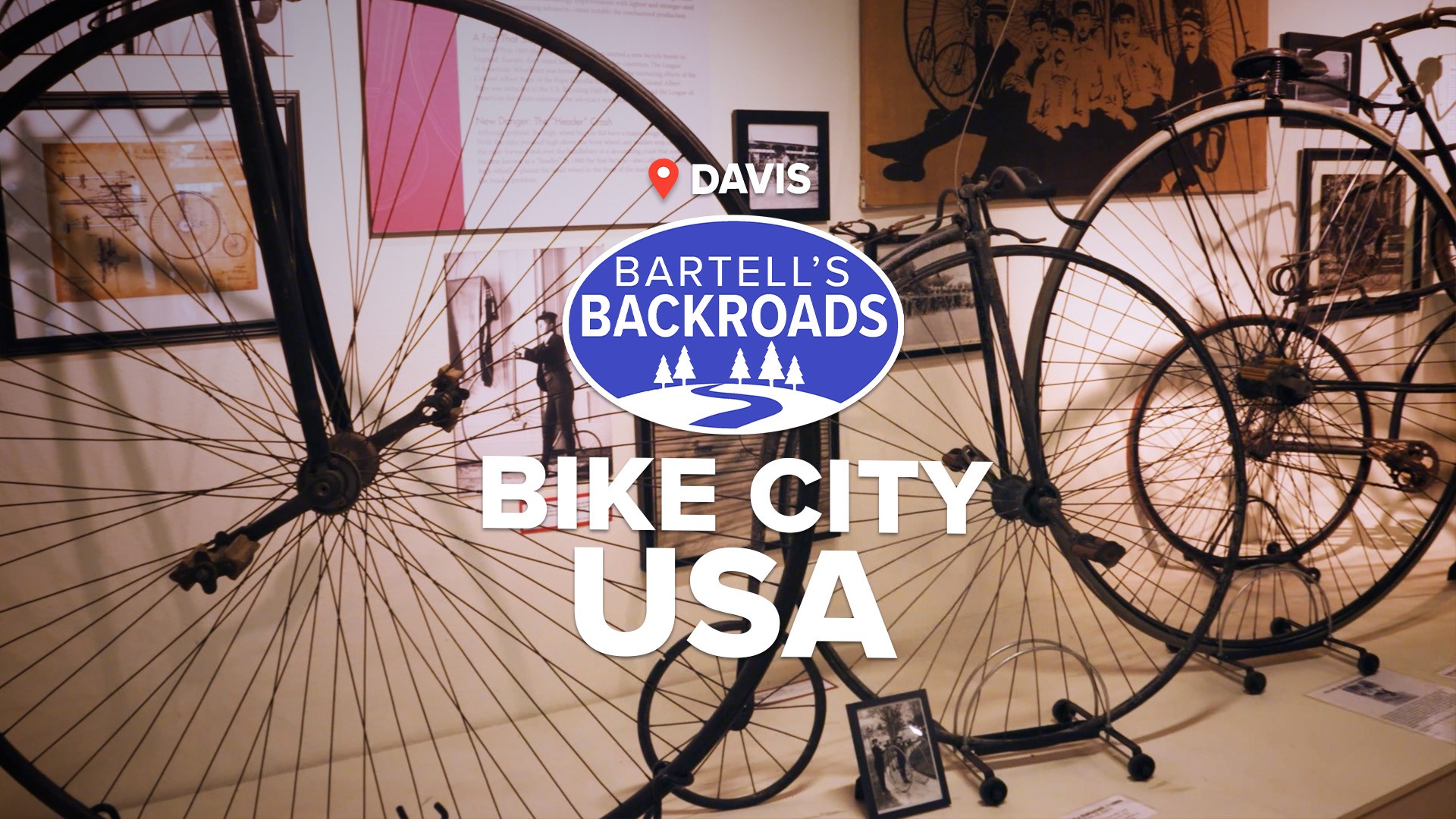DAVIS, Calif. — It's known as “Bike City USA” for good reason. The city of Davis was the pioneer of the bike lane and a model for many city streets across present day America, but at one time the bike lane was against the law.
“In 1967 they voted 'let's start putting bike lanes on roads,' and they found out that wasn’t even legal in California vehicle code because roads are for automobiles,” said Bob Bowen, president of the U.S. Bicycling Hall of Fame.
Had it not been for legislative petitions by Davis city leaders, Bowen says bike lanes in America may still be illegal.
“So they passed legislation through the Assembly, Senate, then Governor Ronald Regan signs it and they could actually paint a thing on the side of the road legally to say 'bikes only,'” said Bowen.
Fast forward to 2010 when Davis built 100 miles of bike lanes and the city was chosen to be the new home of the U.S. Bicycling Hall of Fame museum.
“The Bike Hall of Fame, nationally, has been around since about 1985. It started on the East Coast,” said Bowen.
Inside you'll find a well preserved collection of bicycle memorabilia from past and present. If you are lucky, lead docent David Takemoto-Weerts will show their rare 1823 wooden strider bike which, according to Dave, is not comfortable.
“It is everything you wouldn’t want in a bicycle because it’s a very harsh ride,” said Takemoto-Weerts.
The progression of bike design took some wild turns over the years. Take for example the 1879 British tricycle.
“It's one of the very first uses of what's called rack and pinion steering,” said Takemoto-Weerts.
As bikes progressed, wheels got bigger then smaller and some bikes even added more seats. Sometimes a lot of seats, like the racing bike built by the Stern brothers.
“There were six of them and they actually were racing a steam train,” said Takemoto-Weerts.
Upstairs at the museum you'll get to see memorabilia from past Bicycling Hall of Famers.
“These are all jerseys that were worn by various people inducted into the Hall of Fame,” said Takemoto-Weerts while gesturing to several display cases.
There are too many to name but some notable inductees include female BMX biker Cheri Elliott, Tour de France winner Greg LaMond and Major Taylor, the fastest man in the world in 1900.
“World champion of bicycling, highest paid athlete at the time and African-American,” said Takemoto-Weerts.
The invention of the bicycle changed the world by giving cheap transportation for all. In fact, civil rights leader Susan B. Anthony once wrote, “Let me tell you about bicycling. I think it has done more to emancipate women than any one thing in the world.”
And you can see why when you visit Bike City USA. The U.S. Bicycling Hall of Fame is open Wednesday and Saturday, or by appointment.
MORE FUN ON WHEELS FROM THE BACKROADS: Artists propel kinetic sculptures more than 50 miles over land, sand, water, and mud in a chaotic race to the finish line.



















